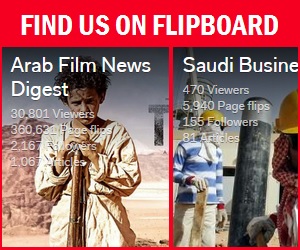Ooredoo or just plain redo?
In the age of 24/7 online news and social media, what reaction should brands expect to receive from a major global announcement? Many marketers would expect the answer, and the preparation required to harness the benefit of such a reaction, to be second nature to most global brands. However, it seems that this is not always the case.
Qtel Group, one of the world’s fastest-growing telecommunications companies, has just announced its new branding at this year’s Mobile World Congress in Barcelona, Spain (watch the launch video here). The group will change it’s brand to Ooredoo (an English language transliteration of the Arabic ‘I want’ – أريد أُرِيدُ). Qtel is now a global communications investor-operator with a customer base of more than 89.2 million people and consolidated revenues of US$6.8 billion for the first nine months of fiscal year 2012 (source: Qtel press release). So, it was with a measure of some disbelief that we discovered just how far their online strategy is lagging behind their rebrand. In fact, one is left to wonder if there is one at all.
Qtel’s new Ooredoo brand as unveiled at Mobile World Congress 2013
Twitter users were amused to find that the Twitter ID @ooredoo is not registered to Qtel, but to an Internet marketer who seems to be using it for link-building for some rather racy customers (it appeared that the company had started to use @_ooredoo_ instead, but as we were later advised, this turned out to be a fake account – see comments below). Okay, we were surprised, but Twitter isn’t the end-all for some brands (although we would have expected that it would be important for a leading telecom services provider).
Unfortunately, the lack of a Twitter ID synonymous with the brand name is not an isolated oversight. Subsequent research shows that the Ooredoo brand is not only not registered across social media platforms by Qtel, but the name is already registered by a variety of different social media users. Qtel doesn’t own its new brand name on Facebook, Youtube, Pinterest(1), Google+ or Instagram either. It’s hard to believe indeed that in a global communications environment where social media platforms play a significant role in shaping global brand perceptions that a global brand should be unveiled without first guaranteeing the IDs that are critical for social media communications.
Perhaps more worrying from a brand perspective is the fact that the global domain ooredoo.com was parked with a domain provider showing random Google Adwords advertisements until Tuesday afternoon (Dubai time). The site was clearly registered on behalf of Qtel, but nonetheless, did the telecom group really want the first visitors to ooredoo.com to be met with ads such as ‘Want Beautiful Filipinas?” or even “Download eXo Platform 3.5”. Thankfully, the URL now has a holding page with the new Ooredoo branding.
Google searches for the word ‘qtel’ alone exceed 300,000 per month. Add together the monthly searches for all Qtel’s operator brands in the Middle East and North Africa and you have well over 1 million Google searches. Qtel’s Indonesian operator Indosat generates 450,000 searches per month on its own. This doesn’t make Qtel Group the world’s most searched for company, but you’d think that these kind of numbers would provide pause for thought when planning for the online reaction to a major company announcement.
There are clearly circumstances that we’re not privy to that lead to the announcement of the Ooredoo brand in the current state of digital unpreparedness, but it does make one wonder. What’s the rationale for launching a global brand name without securing the online identities, registrations and rights for that new brand? What was the advice of the brand consultants? Can an organisation simply dismiss the value of social media IDs when launching a new brand name?
Meanwhile, Qtel’s new brand identity has received a mixed reaction from Twitter users. You can follow the Twitter conversation via the hashtag #ooredoo.
Updated 2230 hrs 26 February 2013
Read more about digital marketing
Has the Arab Spring turned into a torrent of cash? (January, 2013)
Communication first, technology second (April 2012)
Facebook down – thousands of brand pages inaccessible (Mar 2012)
We are all publishers (Mar 2012)
Should you outsource your conversation? (Jan 2010)
The Sustainable Corporation (Sep 2010)
Listen to podcasts about digital marketing
Ecommerce in the Middle East (Dubai Eye, May 2012)
Online advertising in the Middle East (Dubai Eye, Feb 2012)
Watch video on digital marketing
Social media marketing in the UAE (Dubai One TV, Feb 2012)
Connect with us
‘Like’ Spot On PR’s Facebook page
Sign-up for reports & updates
If you would like to receive reports and updates from time-to-time by email click here to join Spot On PR’s mailing list.
Contact us
If you would like help planning your 2013 digital campaign contact us now.
Tags: Algeria, brand, brand development, branding, Carrington Malin, digital marketing, digital strategy, Indonesia, Indosat, Kuwait, Maldives, MENA, Middle east, Nawras, Nedjma, North Africa, Oman, Online marketing, online strategy, Ooredoo, Qatar, Qtel, social media, telecom, Tunisia, Wataniya, Wataniya Telecom



The sad concern here, and Qtel isn’t the only company which does this, is that senior executives didn’t create/involve a comms project team earlier to ensure that all comms and marketing branding would be parked and ready for the launch. While the point that Douglas makes about secrecy is understandable, the rebranding would have involved several external agencies in terms of brand name analysis, focus groups, brand creation etc… And in an age where agencies have to sign NDAs and other legal documentation, can we really argue that there’s little protection for brand owners when rebranding? Is the issue here that the communications team wasn’t empowered enough? Or that the executive team didn’t have the understanding to ensure adequate planning to obtain and brand social and digital media assets? A chance missed by Qtel to make the right impression globally.